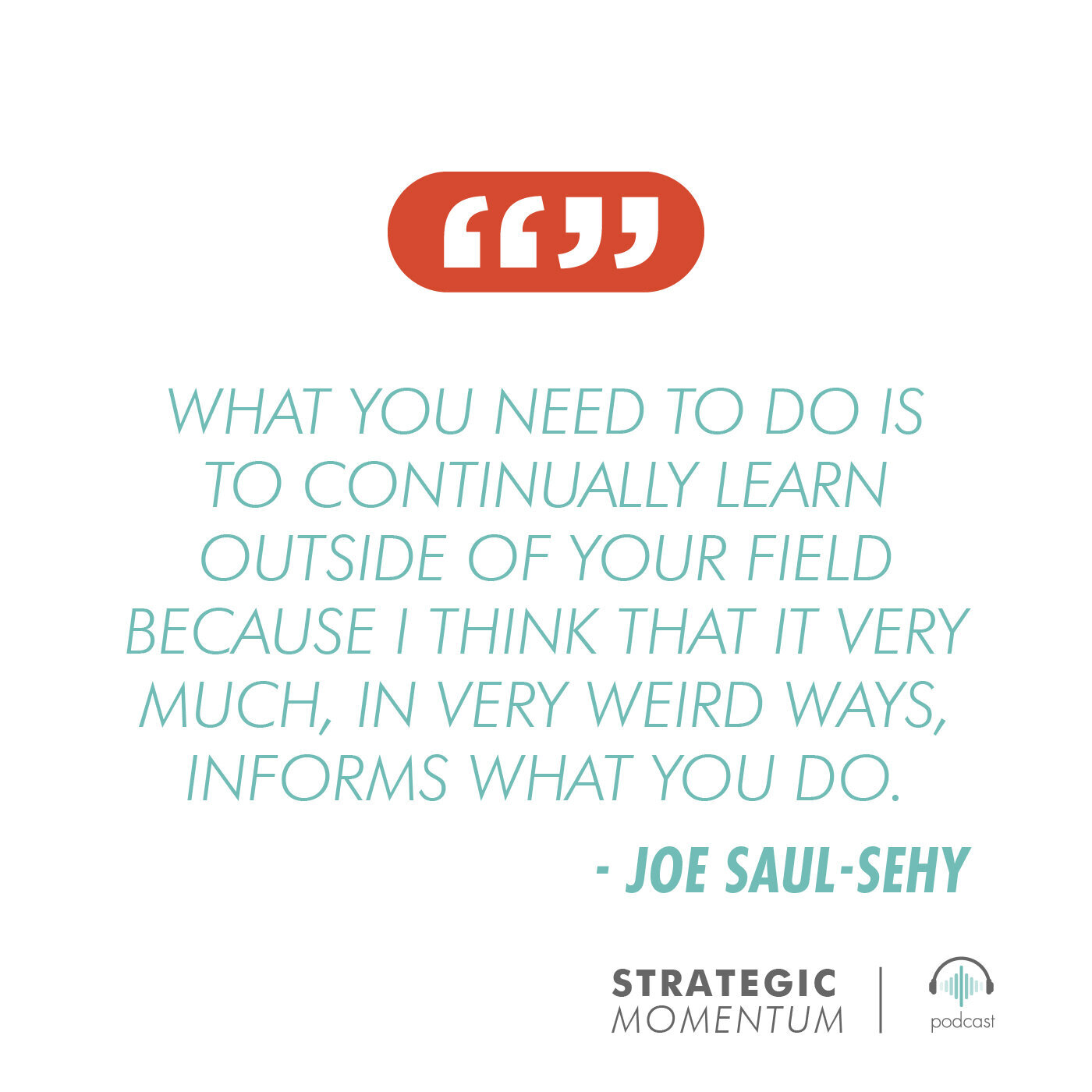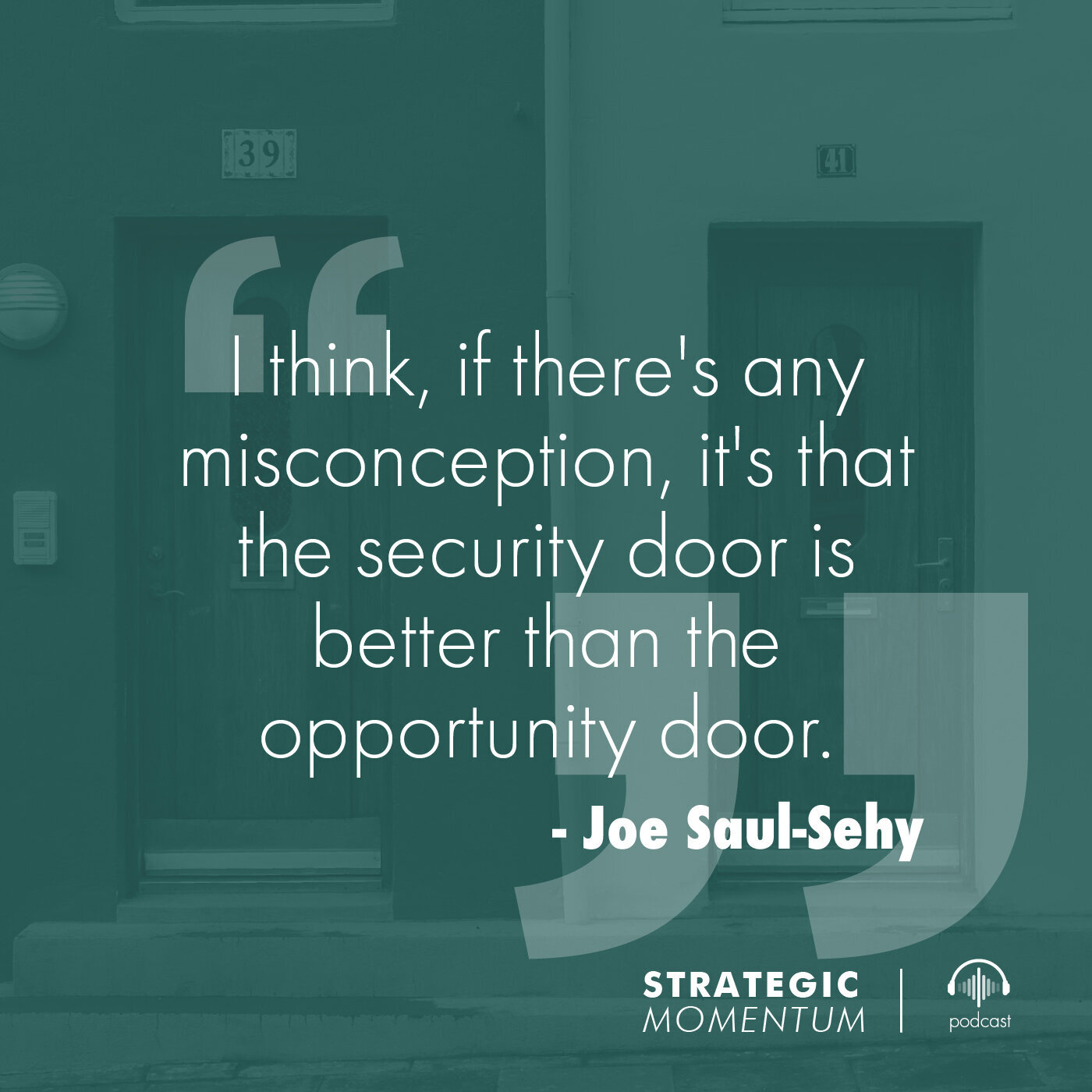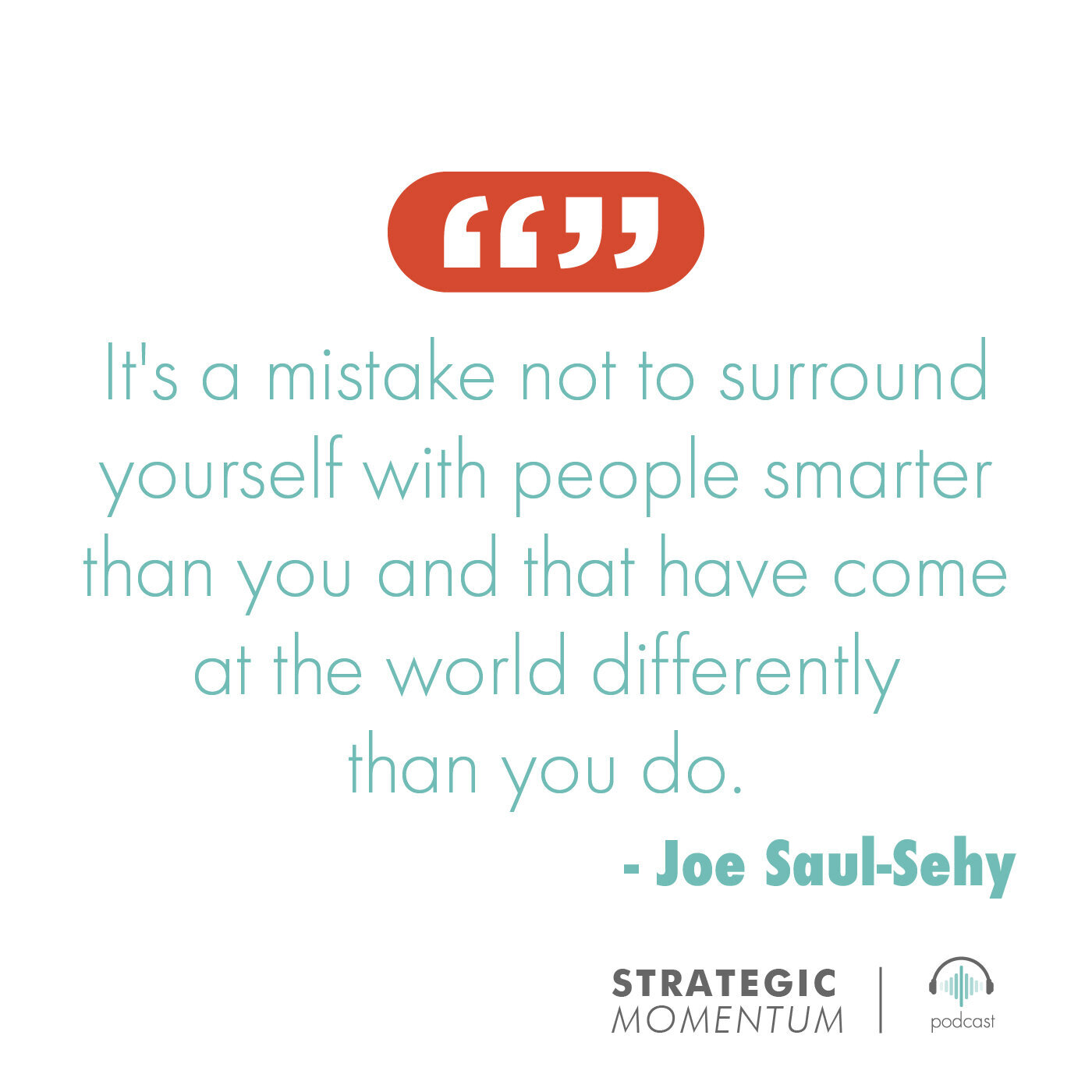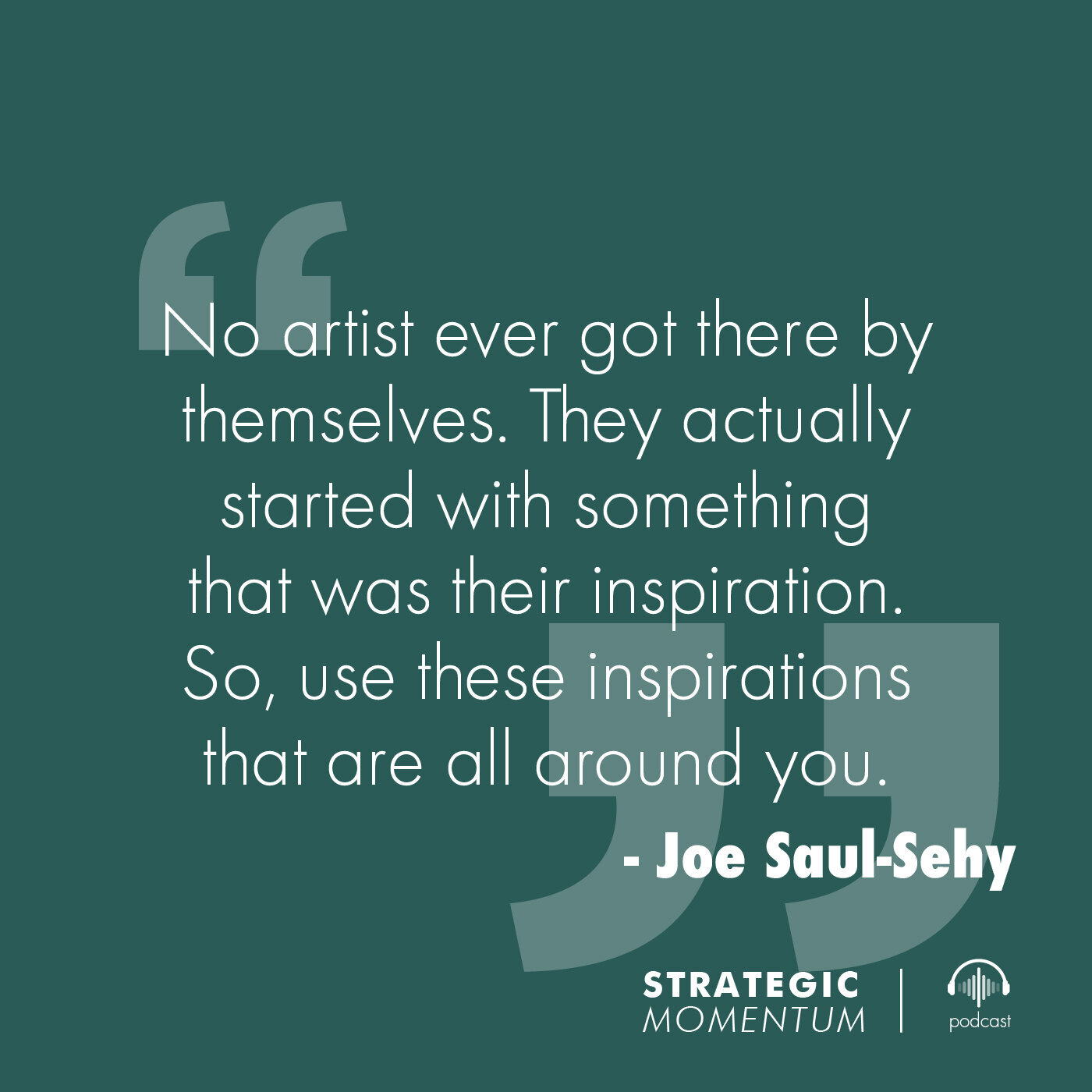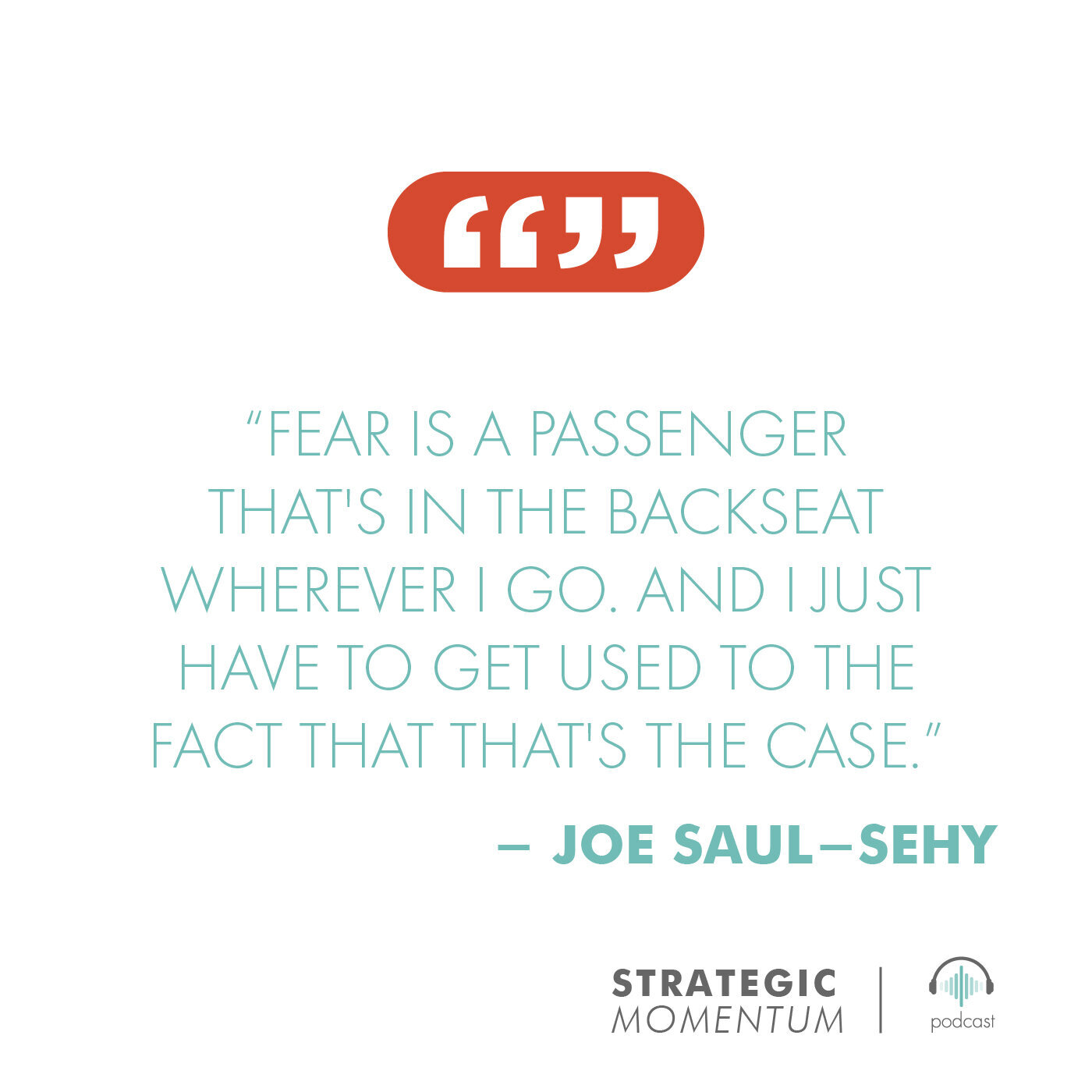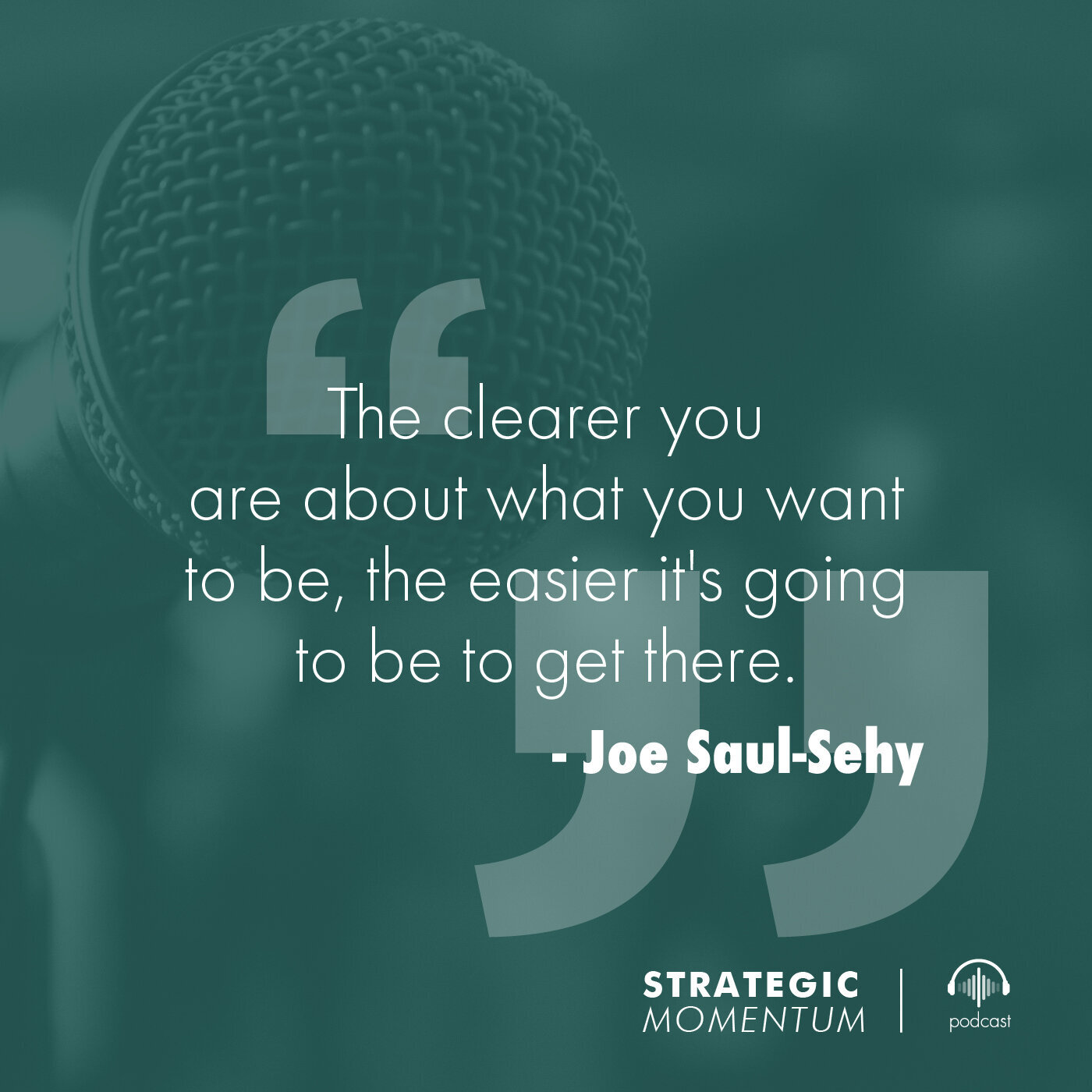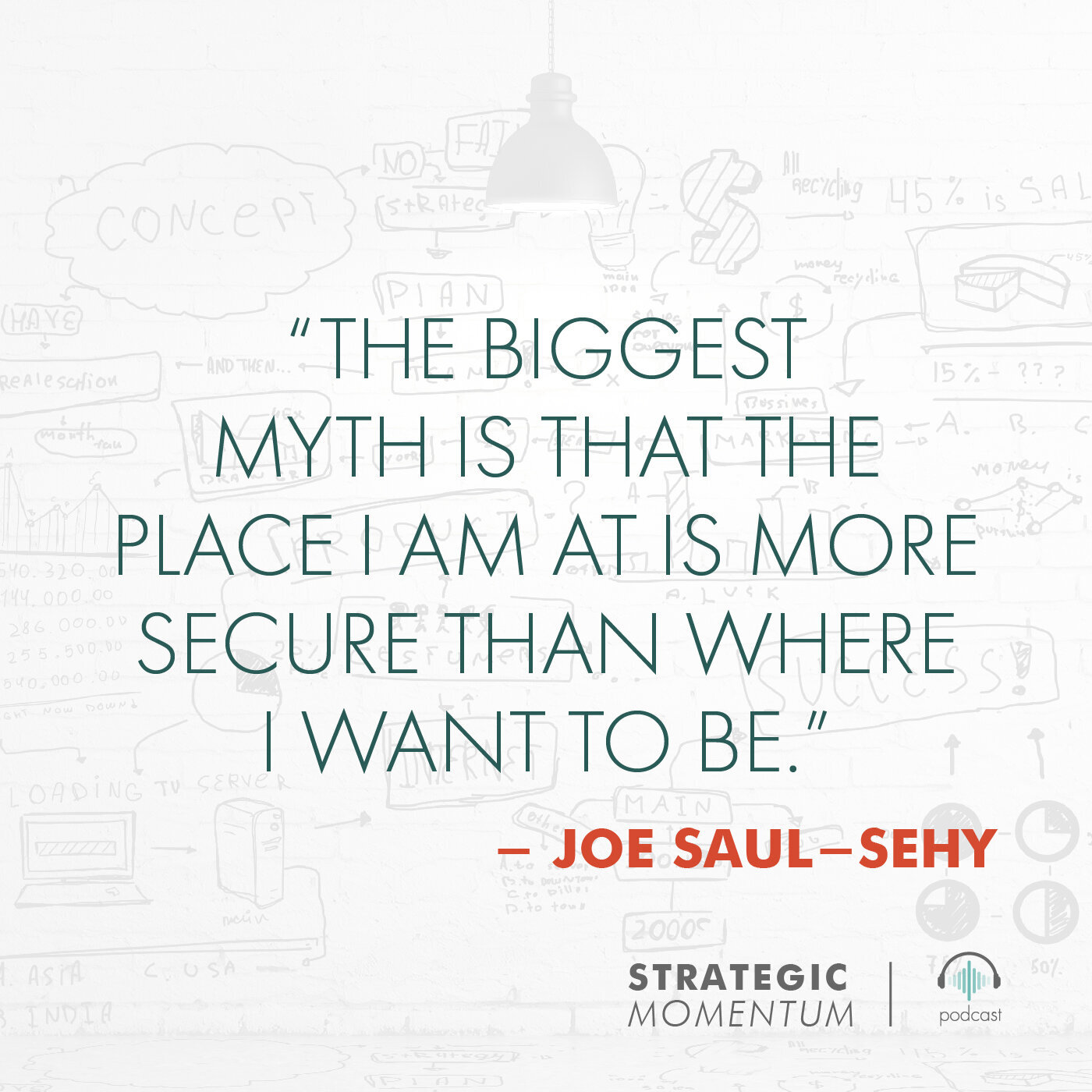Ep. 64 - Pivoting to Find One’s Voice, Define a Career and Build a Business - with Joe Saul-Sehy
Find Us Wherever You Listen To Podcasts
As we begin a new season of the Strategic Momentum Podcast, we are covering a topic that we commonly observed among many of our previous guests - changing your career trajectory to better align with a specific passion or to find greater fulfillment and achieve one’s own potential.
But it can be a struggle to find what that path or profession may be. Some may say it’s still best to stay in your current lane for stability sake. But for those searching for something more, what does it take to find your own professional purpose?
Joe Saul-Sehy is the host of the #1 Financial advice podcast, The Stacking Benjamins. Joe was 40 when the resignation of a mentor in the Financial Planning industry, left him re-examining his own career path.
He chose to make a career pivot, taking him from being a successful financial planner and one of the select group of spokespeople for American Express, to becoming an award-winning podcaster who leverages the science of play to build financial literacy among his listeners.
And this non-linear journey has involved constantly testing and learning from his roles, cherry-picking the aspects he has a passion and aptitude for, and creating his voice by combining these skills and experiences.
In this episode he explains:
The positives to be gained from a multi-faceted, non linear career path
How to overcome fear and create a mindset that facilitates opportunity
The importance of learning from others - and applying this knowledge to you
Leveraging that ‘Average Joe’ Background to Become ‘The Money Man’
Like many of our previous guests, the path to Joe’s career post-college was launched through a fortunate stroke of serendipity. After graduating as an English major, he had “that horrible job you get right out of school that many of us get. Some people get the dream job. That wasn't me.”
It was a friend who saw Joe’s potential in the world of financial planning as he was a planner himself. In fact he said, “We normally don't hire people like you, but I think you'd be pretty good at this."
As someone who grew up in farm country, knew nothing about money, but realized he had an engineering mentality, Joe leveraged these valuable assets as he began his successful 16 year career in financial planning. He owned his own franchise business while also becoming one of 12 media spokesman for American Express and then later Ameriprise. His unique talent was that he could speak about money from a position of truly being that ‘Average Joe.’
Further, his early days as a DJ in his teen years helped build those skills as an entrepreneur and entertainer, which he has continuously leveraged to this day.
Choosing to Find One’s Own Mountain to Climb
Joe’s work and career perspective changed when his mentor Chris decided to leave the Financial Planning Industry. Chris wrote in his resignation letter that while he liked financial planning, he didn't love it enough to have it be all he wanted to do. In fact, he said "I have other mountains I want to climb." And in fact he did - climbing Mount Everest twice.
This all resonated with Joe as he also wasn’t truly in love with what he did. Thus began his own journey to find what he was passionate about. And that next adventure led him down that path of selling his franchise business and pursuing a high school teaching profession as well as serving as a track coach.
But a year into working towards his teaching certificate, he realized being a teacher wasn’t going to fulfill him either. While taking classes, he was simultaneously helping his PR friends with work that he had done in his past life. He was “having a blast” writing and teaching people as a result. It was then he learned that teaching others about money is what he loved but he wanted to do it in his own way. This eventually led him to be a financial blogger before pursuing the development of his successful money podcast.
“Stealing Like An Artist” to Help Define That Unique Positioning and Voice
Joe was initially hesitant to start a podcast even though he was constantly encouraged to do so given his media background.
And while he loved podcasts and had been listening to them for years, he didn’t know what he could uniquely say relative to the competition - what was clear to Joe was that he didn’t want to be a me too show.
Finding his unique positioning and voice became a process of testing, learning and adapting by starting with a great principle from Austin Kleon’s book; “Steal Like an Artist.” The principle involves identifying all of the things you love and riffing/remixing them in a way that is unique to you.
“You know, no artist, no artist ever got there by themselves. They actually started with something that was their inspiration. So, use these inspirations that are all around you.”
By leveraging elements he loved from other podcast genres, coupled with his inherent understanding of how people best learn from his education experience, in addition to embracing the science of play, Joe found his position in the financial podcast market. It was all about making finance more approachable, interesting, and fun, because he was clear about his target audience which wasn’t the money nerd. Rather it was the average joe who typically doesn’t lean towards money topics because they find it boring or hard to understand.
Breaking Through The Career Inertia - Overcoming Fear, Choosing Opportunity over Stability, and Building Breadth vs. Depth
That path to establishing that unique point of view - and subsequently a successful business from the podcast - wasn’t something that happened immediately. Joe and his team stumbled a lot and in fact they embraced and planned for failure in addition to constant iteration early on.
Joe’s early hesitation to start his podcast was based on a fear that he had nothing of value to offer the market. He says that it’s our own fears that result in all of us putting up objections that limit action and progress. This experience mirrors anyone considering a new career path. As Joe says, the biggest challenge we have to overcome are the obstacles we create ourselves. Fear will always be there so “feel the fear and do it anyway.”
“Fear is a passenger that's in the backseat wherever I go. And I just have to get used to the fact that that's the case.”
Joe also points out that to move forward you must first change the way you think of security vs opportunity. Stability, Joe says, is often viewed as a type of success. But true career happiness requires breaking that mindset to enable you to align those personal and professional goals.
It’s also important to be continuously learning from others, particularly outside of your field. Breadth vs. depth of knowledge, while also learning from others who have traveled the road ahead of you, is critical to success.
But always remember to clearly define who you are and what you stand for to help you get to where you want to go.
And by being able to craft what it is you love, you might even be able to create a business out of it and marry passion with profit.
Joe’s Career Advice
Don’t try to reinvent the wheel all the time. If you partner with people that have already been where you want to go, and maybe put your ego in check a little bit, you’ll get there much faster.
When you serve other people, it makes your job so much more fun.
Key Takeaways
The key challenges people face in successfully making a career pivot are the self-imposed obstacles we create. And when we feel them we usually do the wrong thing.
The solution is to get out of our own head:
Map out your plan, start off with a goal and what the positive outcome would look like.
Write out each of those self-imposed objections and then come up with a strategy to solve each one. Remember your brain is great at solving problems - it’s just that we stop too soon and don’t push past the obstacles.
Once you have them down, you’ll realize these roadblocks can be overcome. And the path forward is usually much, much easier than you thought it was.
Forward movement and a successful transition requires a mindset shift of Security vs. Opportunity.
“If there's any misconception, it's that the security door is better than the opportunity door.”
Facing your failures creates the opportunity to learn and grow, so embrace it and even intentionally plan for it. Fear is a constant for everyone, but it does not have to be something that stops you.
"Feel the fear, but do it anyway."
Be clear about what you want to be, what you want to do, and how you are different, while understanding where you fit in the market - it’s important to define your own positioning.
‘Steal Like an Artist’ to help you identify all of the things you love and remix them in a way that is unique to you.
Pivoting requires the need to continuously test, learn, and adapt. Find what you love from each role you take on and aim to incorporate this into your career.
Give yourself permission to constantly pivot because it is a marathon not a sprint.
Understand the road traveled among other successful people (case studies as Joe likes to call it) when making that career transition.
It allows you to see obstacles that we may be afraid of and realize that they can be overcome, while also providing us with additional insights on how to succeed.
Surround yourself with people smarter than you, who have different views of the world.
Everyone has blindspots so getting alternative views and feedback is key to success.
Expand your breadth of knowledge not just depth. Continuous skill acquisition and learning outside of your field informs your strategies and practices in your own career.
A career pivot is challenging, but the bad days will make you appreciate the good.









